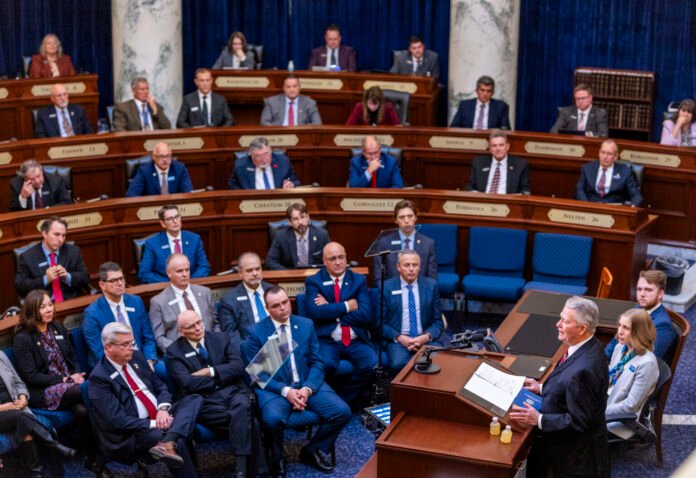Idaho is set to end publicly funded vaccinations and other health benefits for individuals living in the U.S. without legal status, following the passage of a new law signed by Republican Governor Brad Little. The legislation, which will take effect on July 1, will eliminate a range of public benefits, including communicable disease testing, prenatal and postnatal care for women, crisis counseling, and some food assistance for children.
This new law is the first of its kind aimed at restricting public health benefits in response to President Donald Trump’s directive to federal agencies to tighten eligibility verification for public programs and ensure that those who are ineligible are not receiving benefits. Similar proposals have been introduced in other states.
The law is part of a broader effort by Republican-led states to back Trump’s immigration policies. These efforts include measures such as denying driver’s licenses, revoking in-state college tuition rates, and increasing penalties for individuals in the U.S. unlawfully. Since Trump’s administration began, the number of state and local law enforcement agencies cooperating with federal immigration authorities has grown significantly. Federal law has long prohibited undocumented immigrants from accessing taxpayer-funded benefits such as Social Security, Medicare, Medicaid, and Temporary Assistance for Needy Families, though emergency medical care and some other services have been exceptions. States have had the authority to provide certain benefits outside of federal programs, either through federal options or by using state funds, but Idaho is now rolling back these exceptions.
Republican Senator Phil Hart, a sponsor of the bill, clarified that emergency medical services and care for U.S.-born children of undocumented parents will still be covered by state funds. However, services such as vaccinations and prenatal health care will no longer be funded by the state. Hart argued that this change does not prevent individuals from accessing these services but ensures that the state does not pay for them.
Opponents of the law, however, argue that restricting access to preventive health care could negatively impact the state’s overall public health, particularly as measles outbreaks in other states raise concerns. Republican Senator Jim Guthrie expressed concerns that denying prenatal care could endanger unborn children, a contradiction for a state that prides itself on being pro-life.
The legislation may also deter immigrants who are lawfully in the U.S. from seeking health care or applying for services, as concerns about their immigration status may discourage participation, according to Valerie Lacarte, a senior policy analyst at a migration think tank. She stressed that such restrictions can create confusion, hindering efforts to ensure widespread vaccination.
Healthcare providers, such as Terry Reilly Health Services in southwestern Idaho, are still figuring out how to comply with the new law while continuing to serve their patients. Claudia Weathermon, a spokesperson for the organization, explained that they are working to determine how to maintain services within the law’s constraints.
The Idaho Foodbank, which handles food assistance programs, stated that most of its food comes from donations and is not affected by the law. The organization will continue to serve anyone who needs food assistance.
Several groups, including religious organizations, industry associations, and advocacy groups, have voiced opposition to the new law. However, the legislation has received backing from the Idaho Freedom Foundation, a conservative political think tank and lobbying group.
For more political updates, visit, DC Brief.


